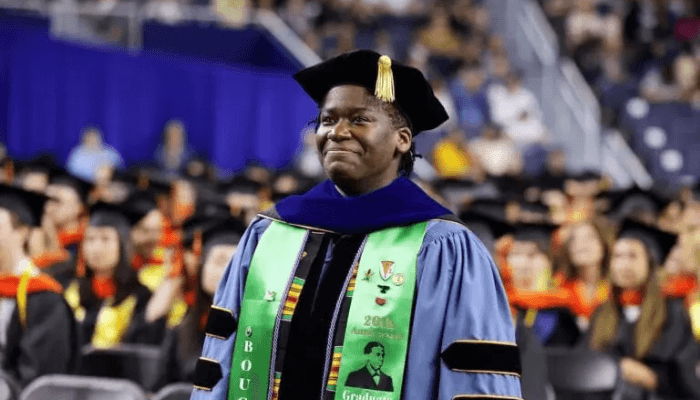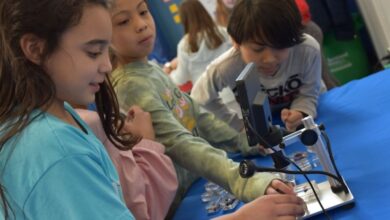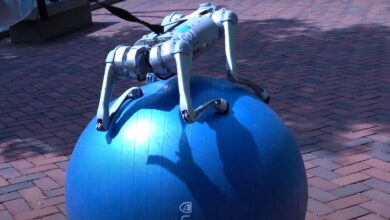Meet Dosunmu-Ogunbi, first black woman to bag a PhD in Robotics Engineering at Michigan

Oluwami Dosunmu-Ogunbi, a Nigerian, is the first Black woman to earn a PhD in Robotics Engineering at the University of Michigan.
Born to Nigerian immigrant parents, Dosunmu-Ogunbi first attempted her PhD in 2020, the COVID-19 year, but the journey hit a snag that stalled her for a while.
Relentless and determined to see through her dream of becoming a STEM professional, she took on the challenge again and succeeded.
She said, “I am the first Black woman to get a PhD in Robotics at the University of Michigan. I do not stand here on my own two feet alone. None of us got here by our individual merit alone. Whether it be teachers, friends, family, mentors, or role models, we each have one or multiple people to whom we are grateful for making this moment possible.”
In her PhD, she developed a stair-climbing algorithm for underactuated robots. Currently, she is expanding the capabilities of that algorithm in her postdoctoral work.
Dosunmu-Ogunbi explained that she was inspired to earn a PhD degree when she met someone who donned a cute postgraduate graduation ceremony hat during her childhood. She inquired about what she had to do to wear one in the future, and she was told she needed to earn a PhD in either medicine, law, or engineering.
She shared that she decided against medicine because she detests the sight of blood and could not pursue law because she dislikes speaking to a large crowd. This left engineering as the last viable option.
She stated, “We each have a solemn duty to make positive contributions to the world. Well, my reasons for becoming an engineer were initially frivolous, but they eventually moved into something more meaningful. I want to have a positive impact on the world.”
According to her department, she has been an active community builder in robotics, where she bagged an MLK Spirit Award from the College of Engineering for mentoring and inspiration. She was also named an outreach ambassador by Robotics for three years, 2021–2023.
“She was named a runner-up in the College of Engineering’s three–minute thesis competition and has been inducted into the Bouchet Society, which recognises outstanding scholarly achievement and promotes diversity in graduate education and the professoriate,” her department said.



